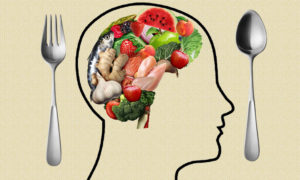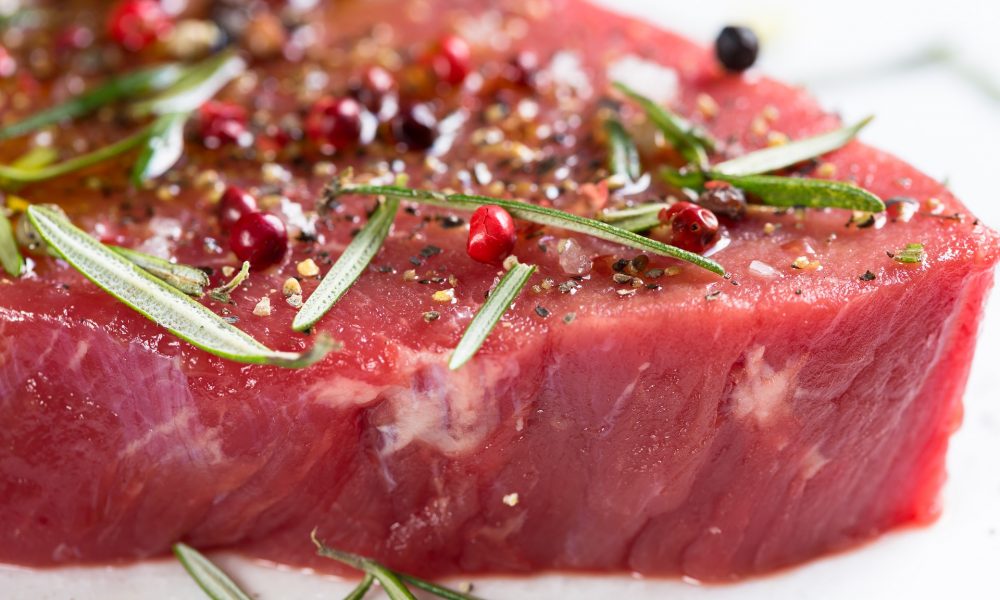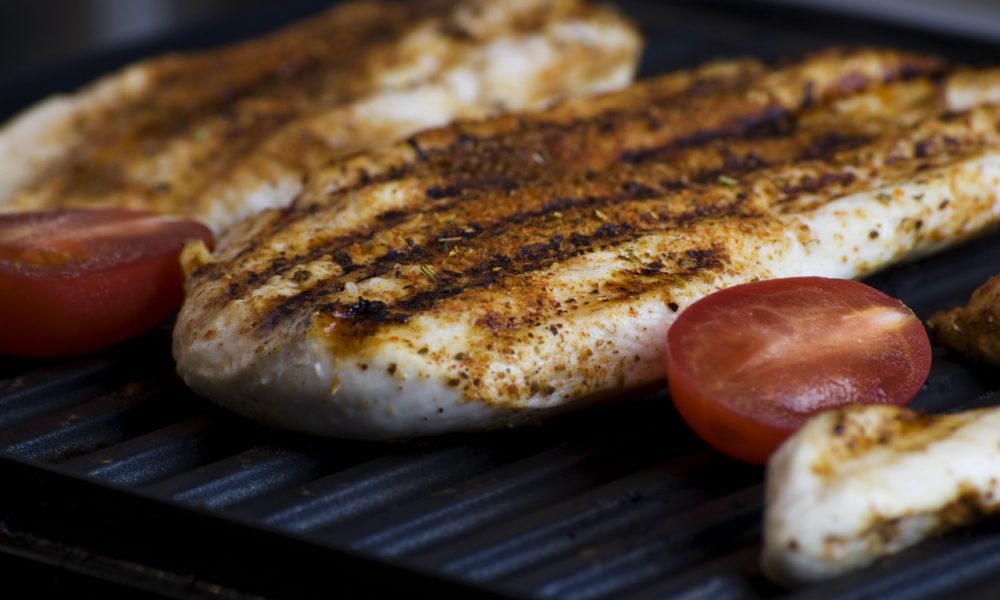
The Shut Up and Get Full Diet
“I’m just so hungry all the time no matter how much I eat” People who say this simply suck at selecting satiating foods.

If you want to retain your hard earned muscles as you age or grow the muscles you already have, then protein needs to be a priority.
Apart from it’s obvious muscle related benefits, protein has a host of other benefits that’s pretty awesome.
So as much as your vegan cousin tries to convince you that protein’s not that important, it actually is.
Sorry vegans.
Anyways, this then begs the infamous question of how much protein should I eat a day?
You’ll often see bodybuilders worship protein, buying truckloads of meat and protein powder. That’s likely a bit overboard.
The totality of the scientific evidence indicates that 1.6g per kg of bodyweight daily is the target to aim for if you want to maximize on benefits (4,5). This is about 0.7g per lb of bodyweight.
In fact, there’s no quality research showing going above 1.8g per kg to result in additional muscle, so after a certain threshold, eating more protein does not result in more muscle (6).

But keep in mind, it doesn’t hurt to eat more (7). High protein diets are safe especially in already healthy individuals, so if you prefer to eat more, there’s nothing wrong with that. Many of my clients like eating 2.2g per kg or 1g per lb of bodyweight simply cause it’s easy to remember.
Assuming you have the room for it in your macros, the only real downside to higher protein intakes are the financial cost as protein is generally more expensive than other macronutrients.
Many people believe this idea that protein should go up during a cut (fat loss phase) in order to better retain muscle. However, during a deficit, protein breakdown barely changes, but muscle protein synthesis (the muscle building process) decreases (8).
In other words, the net amount of protein your body is constructing during a diet reduces, thus if anything, protein requirements should go down during a diet.
This idea that mega-dosing on protein while you diet will save your muscles is unwarranted (10). Once you’re already consuming an optimal amount, more doesn’t do anything.
Same goes with bulking, once you’re already eating enough, eating another steak or adding another scoop of whey won’t build more muscle (11).
In other words, optimal protein intake is pretty static regardless of your goal.
Lastly is the aspect of gender. Women’s protein needs are extremely similar if not, the same as men when looking at strength training research (12).
A meta-analysis not accounting for strength training did find women may have slightly lower needs, but it was statistically not significant (15).
This makes sense as women burn less protein than men (19,20). Given, the difference is likely minimal and the research is conflicting, I suggest the same optimal target for both men and women, especially for lifters.
Here are the key takeaways of optimal protein intake.
Generally speaking, the ideal target for optimal protein intake is 1.6g per kg.
Hector, Amy J., et al. “Pronounced Energy Restriction with Elevated Protein Intake Results in No Change in Proteolysis and Reductions in Skeletal Muscle Protein Synthesis That Are Mitigated by Resistance Exercise.” The FASEB Journal, 12 Sept. 2017, www.fasebj.org/doi/full/10.1096/fj.201700158RR.
Hendler, and Bonde. “Very-Low-Calorie Diets with High and Low Protein Content: Impact on Triiodothyronine, Energy Expenditure, and Nitrogen Balance.” OUP Academic, Oxford University Press, 1 Nov. 1988, academic.oup.com/ajcn/article-abstract/48/5/1239/4716188.
J;, Rozenek R;Ward P;Long S;Garhammer. “Effects of High-Calorie Supplements on Body Composition and Muscular Strength Following Resistance Training.” The Journal of Sports Medicine and Physical Fitness, U.S. National Library of Medicine, pubmed.ncbi.nlm.nih.gov/12094125/.
Campos-Nonato, Ismael, et al. “Effect of a High-Protein Diet versus Standard-Protein Diet on Weight Loss and Biomarkers of Metabolic Syndrome: A Randomized Clinical Trial.” Obesity Facts, S. Karger GmbH, 2017, www.ncbi.nlm.nih.gov/pmc/articles/PMC5644969/.
Helms, E R, et al. “High-Protein, Low-Fat, Short-Term Diet Results in Less Stress and Fatigue than Moderate-Protein Moderate-Fat Diet during Weight Loss in Male Weightlifters: a Pilot Study.” Current Neurology and Neuroscience Reports., U.S. National Library of Medicine, Apr. 2015, www.ncbi.nlm.nih.gov/pubmed/25028958.
M, William, et al. “Meta-Analysis of Nitrogen Balance Studies for Estimating Protein Requirements in Healthy Adults.” OUP Academic, Oxford University Press, 1 Jan. 2003, academic.oup.com/ajcn/article/77/1/109/4689641.
Galbreath, Melyn, et al. “Effects of Adherence to a Higher Protein Diet on Weight Loss, Markers of Health, and Functional Capacity in Older Women Participating in a Resistance-Based Exercise Program.” Nutrients, MDPI, 11 Aug. 2018, www.ncbi.nlm.nih.gov/pmc/articles/PMC6115985/.
Raubenheimer, David, and Stephen J. Simpson. “Protein Leverage: Theoretical Foundations and Ten Points of Clarification.” Wiley Online Library, John Wiley & Sons, Ltd, 24 July 2019, onlinelibrary.wiley.com/doi/full/10.1002/oby.22531.
MA;, Tarnopolsky. “Gender Differences in Metabolism; Nutrition and Supplements.” Journal of Science and Medicine in Sport, U.S. National Library of Medicine, pubmed.ncbi.nlm.nih.gov/11101268/.
Conley TB;McCabe GP;Lim E;Yarasheski KE;Johnson CA;Campbell WW; “Age and Sex Affect Protein Metabolism at Protein Intakes That Span the Range of Adequacy: Comparison of Leucine Kinetics and Nitrogen Balance Data.” The Journal of Nutritional Biochemistry, U.S. National Library of Medicine, pubmed.ncbi.nlm.nih.gov/22841544/.
Sign up for AwesomeFitnessScience Weekly. You’ll get juicy insider secrets, updates, and stories.

“I’m just so hungry all the time no matter how much I eat” People who say this simply suck at selecting satiating foods.

Losing weight is already hard enough, but keeping the weight off once you lose it is a whole-nother beast of a challenge.

The forbidden fruit effect is the idea of restricting certain foods making you crave them more and thus, ruining your diet adherence or progress.